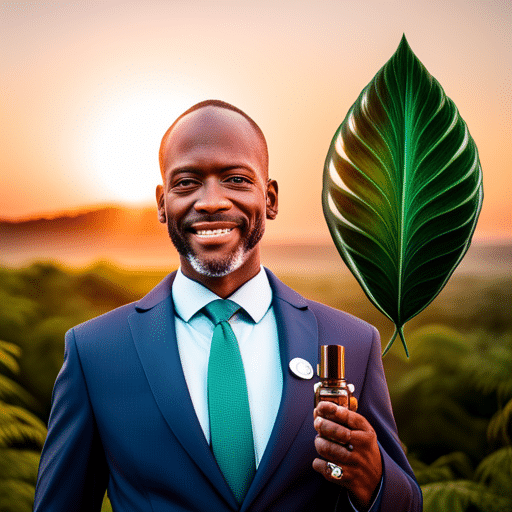As society continues to evolve, so does the understanding and acceptance of alternative therapies that promote overall wellness. One such area of growth is cannabinoid therapy, a burgeoning field that harnesses the therapeutic properties of cannabinoids—compounds found within the cannabis plant—to improve health and well-being. Particularly in Rehoboth Beach, Delaware, this progressive form of therapy has gained significant traction due to its potential benefits.
Table of Contents
The rise in popularity of cannabinoid treatments underscores the shifting paradigms towards holistic healthcare practices. These treatments represent a new frontier in medical science offering potential benefits for various ailments. This article seeks to provide insight into the role cannabinoids play in our bodies’ functioning, their therapeutic use cases, how one can find trusted practitioners in Delaware, and what to expect during consultations and follow-up treatments. The focus is on providing comprehensive knowledge for those who seek liberation from traditional medical solutions and strive for improved well-being through innovative approaches.
Understanding the Role of Cannabinoids

However, discussions related to cannabinoids often raise questions regarding their legality. As per current laws across different jurisdictions globally, not all cannabinoids share an identical legal status. For example, while some cannabinoids found in cannabis plants such as THC are considered illegal due to their psychoactive properties; others like CBD derived from hemp are generally accepted because they lack euphoric effects while still providing potential therapeutic benefits. Nevertheless, it is essential for potential users and practitioners alike to stay abreast with evolving laws on cannabinoid legality to ensure adherence to regulatory guidelines while exploring its promising prospects for enhancing overall well-being.
The Rise of Cannabinoid Therapy

These misconceptions often stem from historical prejudice and misinformation surrounding cannabinoids, hindering their full acceptance into mainstream healthcare and deterring many from exploring their wellness benefits. The lack of standardized regulation also contributes to these misapprehensions due to variable product quality and inconsistent dosage recommendations. However, with ongoing research and education initiatives coupled with stringent regulatory measures in place like those witnessed in Rehoboth Beach, DE; it is anticipated that these barriers will gradually diminish as more evidence supporting the safety and efficacy of cannabinoid therapy comes to light.
Benefits of Cannabinoid Treatments

In addition to disease-specific treatment, cannabinoids also show promise in enhancing overall well-being. They could potentially improve sleep quality, mood stability, appetite regulation, and immune system functioning among other benefits. This highlights the versatility of cannabinoids as not just alleviators of specific ailments but also as general wellness enhancers. It’s pertinent that healthcare professionals including premier cannabinoid practitioners in Delaware continue to explore these possibilities while ensuring individual patient safety by adhering strictly to established cannabinoid dosage guidelines.
Finding a Trusted Specialist

To assist potential patients in their pursuit of finding a qualified cannabinoid practitioner in Rehoboth Beach, several key factors ought to be taken into account:
* The relevance and depth of the practitioner’s educational background related to cannabinoid treatments.
* Proven experience or specialization within the realm of cannabinoid therapy.
* Demonstrated commitment to staying up-to-date with emerging studies and trends pertinent to this treatment modality.
* The availability of clear communication channels between patient and provider, facilitating open discussions regarding treatment plans, potential risks, side effects, progress tracking, etc.
These steps will help ensure patients find not only a highly skilled provider but also one who fosters an atmosphere conducive to healing; where questions are welcomed, concerns are addressed promptly, and individualized care is at the forefront. In such an environment characterized by understanding and respect for individual experiences with health conditions, individuals may feel liberated – free from judgment or stigma often associated with alternative therapies like cannabinoids – further enhancing overall well-being.
Preparing for Your First Consultation

Overcoming initial apprehensions is paramount for a productive conversation during the first consultation. It allows for an honest exchange of information which subsequently leads to more personalized care. Apprehensions could stem from misconceptions about cannabinoid therapy or fear regarding its effects. Hence, it’s beneficial to conduct some research beforehand on reputable sources or have ready questions for the specialist to clarify these concerns during your appointment. In addition, being transparent about lifestyle habits such as diet, exercise routines, and sleep patterns can contribute valuable context towards tailoring an effective treatment plan aimed at enhancing overall wellbeing in Rehoboth Beach, DE area patients.
Continual Care and Follow-up Treatments

The role of post-treatment support cannot be overstated in enhancing overall well-being within this therapeutic context. It provides a platform for patients to discuss their experiences, progress, and possible side effects with experienced professionals who can provide expert advice on how best to manage these responses. Regular follow-ups also offer opportunities for re-evaluation of treatment strategies based on observed outcomes. This level of ongoing support not only encourages adherence but also empowers patients throughout their journey toward improved health and wellness via cannabinoid therapy — a testament to the essence of liberation inherent in this innovative medical field.
Frequently Asked Questions
What legal restrictions are there for cannabinoid treatment in Delaware?
In Delaware, the legality of cannabinoid treatment has evolved over time. Medical cannabis licensing is required for practitioners, with specific regulations overseeing its prescription and use to ensure patient safety and legal compliance.
Are there any potential side effects or risks with cannabinoid treatments?
Cannabinoid treatments present potential risks such as Cannabinoid Dependency Risks and the possibility of allergic reactions. These treatments, although beneficial to some, may have adverse effects on others and should be considered with caution.
How long does it typically take to see results from cannabinoid therapy?
The duration to observe results from cannabinoid therapy varies, contingent upon individual Therapy Success Factors. Notably, Cannabinoid Dosage Adjustments might be necessary in this therapeutic process, to optimize treatment outcomes and overall wellbeing.
What is the cost associated with cannabinoid treatments and is it covered by insurance?
The cost of cannabinoid treatment financing varies widely and is dependent on individual treatment plans. Unfortunately, most insurance policies for cannabinoids currently do not cover the costs due to federal regulations on cannabis products.
Are there any lifestyle changes or dietary restrictions required when undergoing cannabinoid therapy?
Cannabinoid therapy may necessitate modifications to one’s lifestyle. Following a Cannabinoid Nutrition Guide and adhering to a Therapy Exercise Regimen can effectively augment treatment outcomes, though specific changes depending on individual health conditions.

